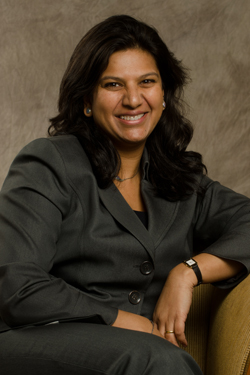Another University of Denver law professor sues school alleging gender and wage discrimination

University of Denver Sturm College of Law. Photo by Coopersmith via Wikimedia Commons.
Rashmi Goel, a tenured associate professor at the University of Denver Sturm College of Law, has filed an Equal Pay Act complaint, claiming that she earns significantly less than others in her academic category.
This was discovered following an earlier EPA lawsuit brought against the law school, the Denver Post reported Wednesday. That action was filed by the Equal Employment Opportunity Commission on behalf of women who are full professors at the law school and settled for $2.7 million in 2018. As part of the consent decree, the university agreed to internally publish a list of salaries.
The university hired Goel to teach at the law school as an assistant professor in 2002, the complaint states, and in 2009 she was granted tenure and made an associate professor.
“Of the current pool of 12 associate professors, plaintiff has been at (the law school) the longest, yet she earns over $30,000 less than the average salary of the eleven associate professors who earn more than her,” states the U.S. District Court for the District of Colorado complaint, filed in Denver June 3. It notes that the plaintiff is Asian.
“Of the 11 associate professors who earn more than plaintiff, ten are male and/or non-Asian. Plaintiff earns $40,000 to $50,000 less annually in base salary alone than the associate professors who have the most comparable years of experience to plaintiff,” the complaint states.
It also claims that an assistant professor at the law school, ranked lower than an associate professor, earns approximately $8,500 more than Goel. According to her, the assistant professor is an Asian male.
Until the faculty salary list was made available, Goel says she had no idea that she earned significantly less than the other associate professors. She told the ABA Journal that out of all the law school’s associate professors, she’s been there the longest, and is paid the least. The salary list was published internally in January 2019, according to the complaint, and she met with Bruce Smith, dean of the law school, in March. He reportedly said that he had tried to “reverse engineer” how the law school determined Goel’s salary, but was unable to, the complaint states.
“There was a history of how long it must have been going on, in the wake of the other lawsuit,” she says. “It’s clear to me that the university knew, and did nothing to rectify it.”
 Rashmi Goel. Photo from the University of Denver Sturm College of Law.
Rashmi Goel. Photo from the University of Denver Sturm College of Law.
Jon Stone, the university’s media relations manager, told the ABA Journal that they are still in an ongoing process of evaluating salaries after entering the EEOC consent decree. They expect that an initial set of salary adjustments will be effective Aug. 1, which is when the university traditionally makes salary adjustments.
In a statement, the university wrote that it cares about “fairness, equity and opportunity.”
According to Goel’s complaint, she has taught three courses at the law school: criminal law, comparative law and a seminar titled “Multiculturalism, Race and the Law.” The complaint states that her teaching evaluations are “consistently outstanding,” and the dean told her she receives the most “unsolicited positive feedback” from graduates.
Goel’s Google Scholar profile lists 15 articles, published between 2000 and 2015. Her scholarship includes works on domestic violence, criminal law, critical race theory and restorative justice, and since 2013 she’s made 31 presentations of her work, the complaint states. It also claims that she’s served on numerous law school committees, including the admissions, governance rights review and appointments committees.
Write a letter to the editor, share a story tip or update, or report an error.


